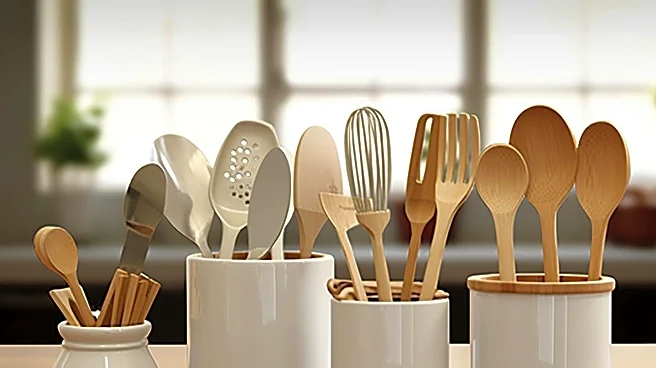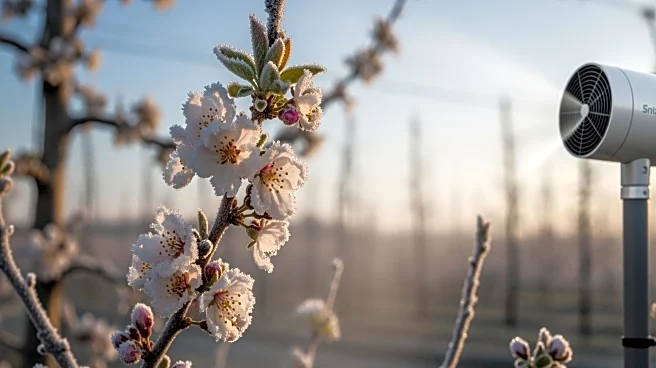What's Happening?
Many home cooks rely heavily on kitchen tools such as microwaves and nonstick pans, often using them as crutches rather than considering alternative methods that may yield better results. Nonstick pans are ideal for cooking eggs but may not achieve the desired caramelization for other dishes. Similarly, microwaves are convenient for reheating but can lead to uneven cooking and potential ingestion of microplastics. The article suggests using cast iron or stainless steel pans for better caramelization and air fryers for reheating. It also advises against relying solely on blog recipes, recommending cookbooks for tested recipes and encouraging cooks to trust their instincts.
Why It's Important?
The overuse of certain kitchen tools can impact the quality of cooking, leading to less flavorful and less nutritious meals. By understanding the limitations of tools like nonstick pans and microwaves, home cooks can improve their culinary skills and produce better-tasting dishes. This shift can also lead to cost savings, as relying on fresh ingredients and traditional cooking methods may reduce expenses associated with precut produce and processed foods. Encouraging cooks to trust their instincts and experiment can foster creativity and confidence in the kitchen.
What's Next?
Home cooks may begin to explore alternative cooking methods and tools, such as cast iron pans and air fryers, to enhance the quality of their meals. As awareness grows about the limitations of certain kitchen tools, there may be increased interest in culinary education and resources that promote traditional cooking techniques. This could lead to a resurgence in the popularity of cookbooks and cooking classes, as individuals seek to refine their skills and expand their culinary repertoire.
Beyond the Headlines
The reliance on convenience tools in the kitchen reflects broader societal trends towards efficiency and time-saving measures. However, this may come at the cost of quality and health. Encouraging a return to traditional cooking methods can promote mindfulness and appreciation for the culinary arts, fostering a deeper connection to food and its preparation.









